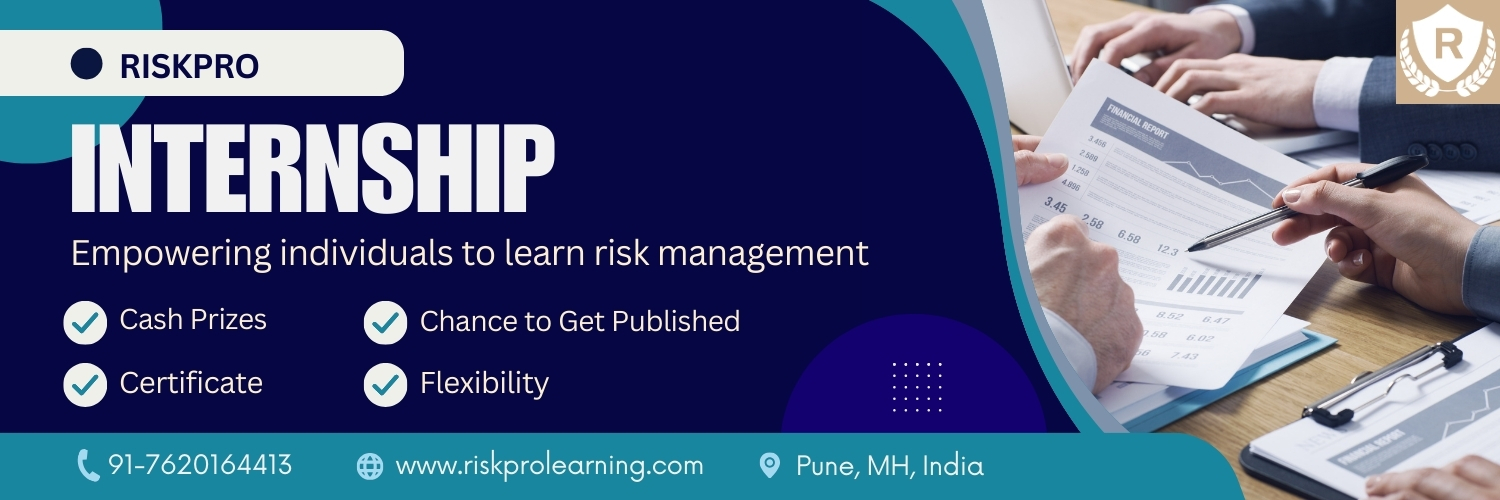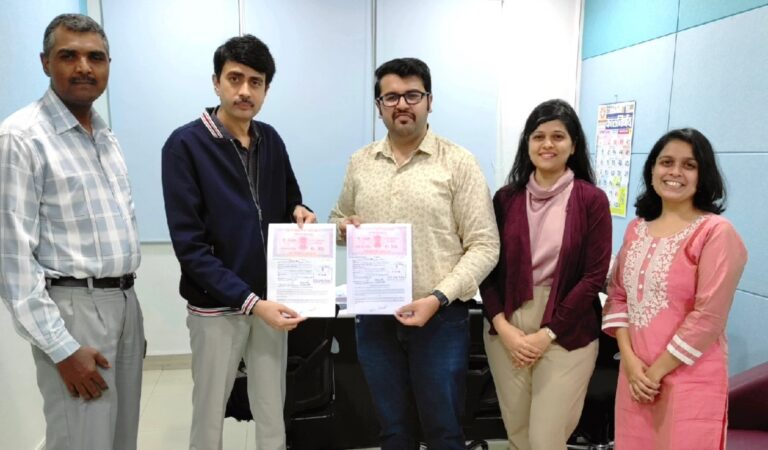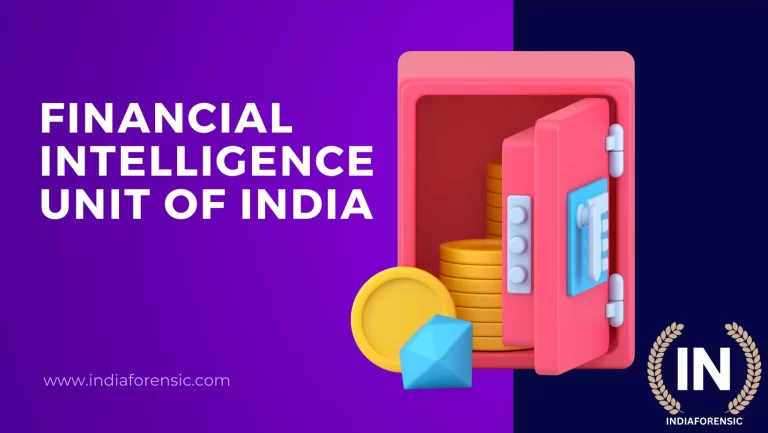In the realm of finance, risk management emerges as the pivotal process that serves to identify, analyze, and ultimately alleviate the risks entwined with investment decisions. It is this very process that acts as a safeguard, diligently working to curtail or eliminate the potential risks that might rear their heads during the investment journey.
Understanding Risk Management
But before we delve deeper into the nuances of risk management, let’s first demystify the concept of risk itself. Risk, in the financial realm, embodies the looming specter of financial losses that can loom over various investments. It’s a stark reminder that as one’s investment aspirations soar in pursuit of greater returns, the shadows of risk lengthen in tandem. Indeed, the realm of financial products teems with diverse risk factors and corresponding returns.
The Tapestry of Risk
Now, let’s embark on a journey through the intricate tapestry of risks in the financial landscape:
Within the discipline of risk management, different categories or disciplines of risk are addressed systematically. Here are some examples:
Credit Risk
This discipline focuses on assessing the risk of borrowers defaulting on loans or failing to meet their financial obligations. Banks and financial institutions meticulously analyze the creditworthiness of individuals and businesses before extending credit.
Learn more about Credit risk in CBFA syllabus
Market Risk
Market risk pertains to the potential losses due to fluctuations in financial markets. This includes risks associated with changes in interest rates, currency exchange rates, and stock prices. Investment firms often employ portfolio diversification to manage market risk.
Learn more about market risks in Stock Market Risk Course
Operational Risk
Operational risk deals with the risks associated with an organization’s internal processes, systems, and human error. For example, a manufacturing company might implement quality control measures to mitigate operational risks related to product defects.
Reputational Risk
This discipline focuses on protecting an organization’s reputation and brand image. Companies engage in public relations strategies and crisis management plans to safeguard against reputational damage caused by negative events.
Compliance Risk
Compliance risk involves adhering to laws, regulations, and industry standards. Financial institutions must comply with anti-money laundering (AML) and know your customer (KYC) regulations to mitigate compliance risk.
Cybersecurity Risk
Cybersecurity risk encompasses the threat of data breaches, cyberattacks, and unauthorized access to sensitive information. Organizations invest in robust cybersecurity measures to protect against these risks.
Environmental Risk
Environmental risk deals with potential liabilities associated with environmental factors, such as pollution and climate change. Energy companies, for instance, face environmental risk related to regulatory changes.
The Risk Management Process
Effective risk management pivots around a well-defined process encompassing risk identification, risk assessment, and risk mitigation:
- Risk Identification: The initial step involves a series of activities aimed at assessing the impact of various processes on business outcomes. This entails scrutinizing performance, quality, damage, loss, and the organization’s reputation.
- Risk Assessment: This process zeroes in on identifying potential hazards and their ramifications on business conduct. It serves as the bedrock for recognizing inherent risks in the business, enabling organizations to formulate processes, controls, and measures to temper these risks.
- Risk Prioritization: Not all risks are created equal. Risk prioritization winnows the field to identify the most severe risks. Professionals take into account the likelihood of risk and its potential harm, channeling their focus accordingly.
- Risk Mitigation: The culminating step in risk management, risk mitigation ushers in a gamut of processes designed to stymie the perils of risk. Organizations adopt risk mitigation strategies tailored to their risk tolerance, precluding forthcoming financial risks.
Diverse Risk Management Techniques
In the toolkit of risk management, various techniques stand ready to confront the challenges:
1. Value at Risk (VaR)
VaR analysis furnishes a probability-based estimate of the minimum financial loss over a defined period. It’s a bedrock technique for assessing potential losses in the evaluated entity. Firms wield firm-wide VaR assessments to gauge cumulative risks across various trading desks and departments. This data aids financial institutions in determining the adequacy of their capital reserves.
2. Risk Avoidance
Risk avoidance is the complete elimination of hazards that could harm the organization, its stakeholders, and assets. It’s a potent strategy to deflect as many threats as possible, particularly when a risk could unleash substantial harm. Companies deploy policies, employee training, insurance coverage, and contractual agreements as shields against potential risks.
3. Risk Retention
Risk retention entails a deliberate acceptance of losses, often achieved through deductibles and loss-sensitive plans. This approach hinges on the notion that retaining risk proves more cost-effective than procuring full or partial insurance coverage.
The Significance of Risk Management
Why, you might wonder, is risk management such a pivotal facet of the financial landscape? The answer is multifaceted. It equips businesses to adeptly identify and tackle potential risks, laying the foundation for effective risk mitigation. Through judicious risk management, high-priority risks are met head-on, ensuring that financial stability remains intact.
Embracing Risk Management as a Career Path
The realm of risk management beckons those with a penchant for navigating the complex terrain of risk avoidance, reduction, sharing, and retention. These tasks are inherently challenging and demand the expertise of professionals, thereby endowing this career path with unique advantages. Consider the following benefits that make risk management an enticing career opportunity:
- Versatility: Experts well-versed in risk management can collaborate with a diverse array of financial companies and even secure positions in Fortune 500 companies.
- Remunerative: Risk management offers lucrative compensation, with entry-level employees amassing substantial earnings, often exceeding Rs. 9 lakhs in total compensation.
- Path to Growth: The trajectory toward career advancement in risk management is swift. By obtaining risk management certifications and training, individuals can readily aim for higher positions.
- Data Insights: Risk management fosters expertise in deciphering market trends and leveraging data effectively.
- Consultative Roles: Seasoned risk managers can segue into consulting roles, sharing their invaluable insights.
- Numerical Proficiency: The field hones numerical acumen, a coveted skill for prospective employers.
The Expansive Scope of Risk Management
Financial investments teem with myriad risks, making the role of the risk management team paramount. Whether a company contemplates investments in securities, the stock market, or novel business ideas, the risk management team diligently analyzes every facet, uncovering both overt and covert elements that might affect the investment decision. As such, risk managers are instrumental in guiding top-level management, steering them toward prudent decisions. In a world where risk is an inextricable element of investment, professionals adept at averting potential pitfalls will continue to be in high demand, making careers in risk management an enduring pursuit.
Courses in Risk Management
For those intent on carving a path in risk management, various courses and certifications beckon:
- Free Certification Courses
- eLearning Certification Courses
- Mentored Classroom Certification Courses
These courses, steeped in both theory and practicality, offer a well-trodden path to mastery in risk management.
Top Recruiters for Risk Management Professionals
When it comes to securing positions in risk management, a plethora of top-notch recruiters await:
- J.P. Morgan Chase & Co. (JPMCC)
- HSBC
- ICICI Bank Ltd.
- HCL
- Ericsson
- American Express
- Accenture
- MetraTech Corp
- WIPRO
- Deutsche Bank
- Crescendo Global
- Black TurtleDBS Bank Ltd.
- Amazon
- Ameriprise Financial Services, Inc.
- Vodafone
- Bank of America
- Flipkart
- Wells Fargo
- Ocwen Financial Corporation
- Standard Chartered Bank Ltd.
- JPMorgan Chase
- Credit Suisse
These illustrious institutions constantly seek skilled risk management professionals to fortify their ranks.
Skills for Aspiring Risk Management Professionals
If you’re charting a course toward a career in risk management, be sure to cultivate these essential skills:
- Problem-solving acumen
- Analytical prowess
- Strong communication skills
- Business acumen
- Numerical proficiency
- Ability to thrive under stress
- In-depth knowledge of industry and market dynamics
- Technical finance expertise
- Persuasive negotiation skills
- Aptitude for data presentation
- Academic credentials in financial risk management
- Strategic thinking
- Resilience in the face of regulations
- Networking ability
- Convincing business acumen
- Proficiency in economic concepts
- Astute judgment
Disciplines in Risk Management
Risk management, an expansive domain, bifurcates into three distinct disciplines, each with its unique skill set:
1. Credit Risk
This discipline demands analytical skills, encompassing impairment modeling, risk model development, and familiarity with programming languages like SAS, R, SQL, and more. A grasp of technical languages can render you a preferred candidate in the world of credit risk management.
2. Financial Risk
The realm of financial risk management delves into the intricacies of financial instruments. Here, knowledge of market rates, liquidity, market volatility, and banking book risks is pivotal. Mastery in areas such as treasury, trading, and investment banking is essential. Additionally, understanding market product information and leveraging it to minimize financial risk sets you on a solid path in financial risk management.
3. Operational Risk
Operational risk management hinges on operational and financial planning. It calls for a strategic approach to risk mitigation and necessitates an understanding of business operations. Employers often seek candidates who can proactively identify potential operational risks.
Becoming a Risk Management Professional
To embark on the journey of becoming a risk management professional, consider the following steps:
- Acquire a Bachelor’s degree in finance and accounting.
- Contemplate pursuing a master’s degree in risk management or business management, with a focus on finance or economics. This provides invaluable insights into the financial industry and market dynamics.
- While not mandatory, gaining training and certification in risk management can significantly enhance your proficiency in risk management. Certain recruiters also prioritize risk managers with specific licensures, particularly in sectors like healthcare.
Tips for Aspiring Risk Management Professionals
Whether you’re starting fresh or seeking to advance in the field of risk management, tailored tips can guide your career path:
No Prior Knowledge
- Gain foundational knowledge in accounting, business management, and finance.
- Familiarize yourself with MS Excel.
- Practice basic mathematics and concepts.
- Read books on economics.
- Cultivate the habit of reading business newspapers.
Basic Knowledge
With a rudimentary understanding of accounting and finance, you can embark on an entry-level journey and strive for positions such as security associate, operations associate, or junior credit associate. Here are essential tips for this stage:
- Develop proficiency in Microsoft Excel.
- Learn to build financial models.
- Strengthen your grasp of stock market trading, investments, and volatile markets.
- Translate economic theories into practical implementation.
- Gain relevant experience by joining banking or non-banking finance companies.
- Secure roles as an accountant, auditor, or financial associate, and gradually progress to managerial positions within the realm of risk management.
Intermediate Knowledge
To excel and grow in risk management, continuous learning and mastery of existing skills are crucial. Here’s how you can thrive at this stage:
- Familiarize yourself with business metrics such as budgeting, forecasting, and reporting.
- Learn technical languages like R and Python.
- Stay current with evolving banking techniques, including statistical, econometric, and mathematical modeling.
- Consider pursuing a master’s degree in economics or finance.
- Explore financial engineering and actuarial science.
- Pursue risk management certifications and licensure to elevate your career to the next level.
Advanced Knowledge
For those striving to ascend the risk management ladder, the following tips can prove invaluable:
- Pursue advanced risk management certifications like Financial Risk Manager (FRM), Professional Risk Manager (PRMIA), CFA, and more.
- Attain expertise in and stay updated on regulatory requirements related to model risk management.
- Showcase strong organizational skills.
- Demonstrate the ability to manage concurrent projects effectively.
- Excel in translating complex statistical scenarios into actionable risk mitigation strategies.
- Propose effective plans to address potential risks.
- Master benchmarking comparisons.
- Develop additional skills such as financial planning, fraud detection, credit risk management, anti-money laundering, and asset and liability management.
Popular Risk Management Courses
For those seeking formal education and training in risk management, consider the following popular courses and degree programs:
- Degree programs in risk management and insurance.
- Chartered Property and Casualty Underwriter certification.
- Financial Risk Manager (FRM).
- Professional Risk Manager (PRM).
- Operational Risk Modeling (ORM).
- Certified Credit Research Analyst (CCRA).
- Chartered Enterprise Risk Analyst (CERA).
- Certified Risk Managers (CRM).
These courses provide comprehensive knowledge and practical skills to thrive in the dynamic field of risk management.
In closing, the world of finance is fraught with risks, but it’s also teeming with opportunities for those who embrace the art and science of risk management. Armed with the right skills, knowledge, and determination, you can navigate the intricate web of financial risks and carve a rewarding career path in this dynamic field.
 In the fast-evolving landscape of risk management, Riskpro stands out as a leading player, offering an unparalleled opportunity for global students through its paid internships. This unique program not only provides invaluable hands-on experience but also opens doors to exciting rewards and global recognition.
In the fast-evolving landscape of risk management, Riskpro stands out as a leading player, offering an unparalleled opportunity for global students through its paid internships. This unique program not only provides invaluable hands-on experience but also opens doors to exciting rewards and global recognition.

